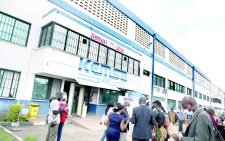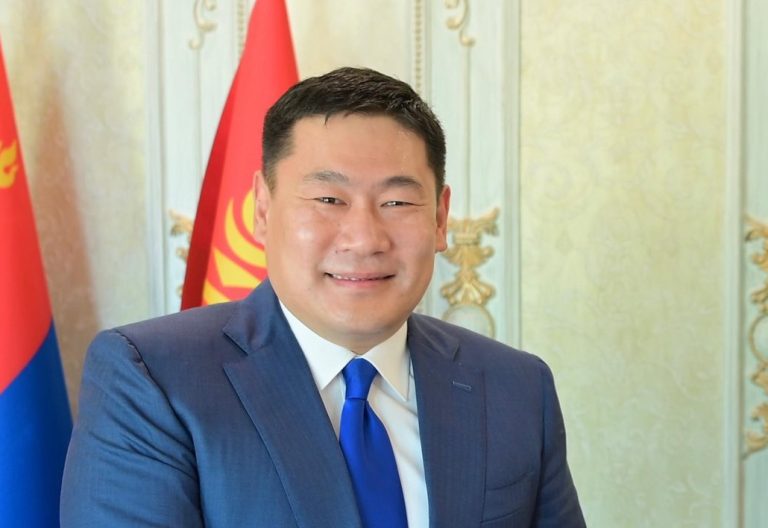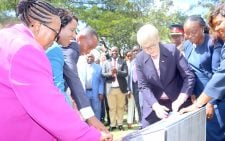Mega UN project boost to affordable housing plan
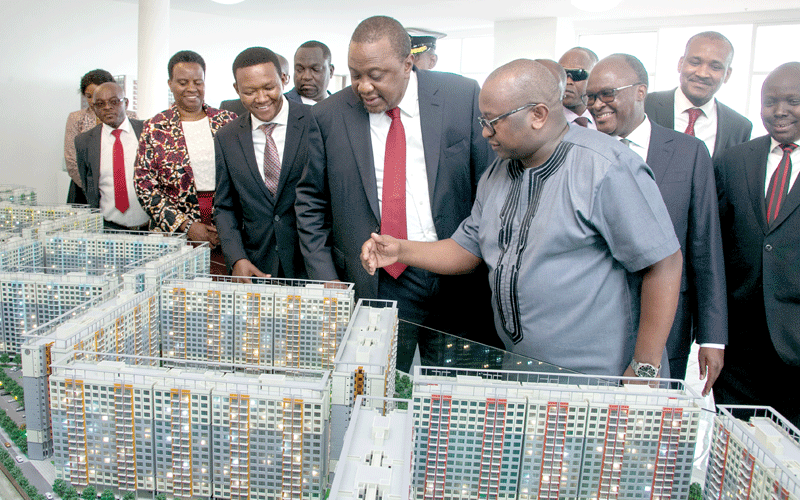
The State’s affordable housing initiative has received another boost after the President Uhuru Kenyatta launched a mega housing project in Mavoko, Machakos county last week.
Dubbed Habitat Heights and located at Lukenya, the development is one of the government’s strategic partners’ projects and will deliver 8,888 units.
It is one of the projects of the United Nations Office for Project Services (Unops) and their partners and will provide homes to present and retired staff members of the various constituent arms of the United Nations, their families and friends.
The project is being undertaken by Afra Holdings, a Singaporean multinational, through its local subsidiary Singapura Developers (Kenya) in conjunction with Housing Finance Bank.
Singapura will host residential units ranging from studios, one-bedroom, two-bedroom and three-bedroom units on the 77.75-acre land in Lukenya Hills off the Nairobi-Mombasa highway.
The project that will see seven blocks of between 24 and 26 floors set up is set to be completed in three years.
300,0000 UN homes
Launching the project, Uhuru said it would inject $5 billion (Sh500 billion) into the economy and was an affirmation that Kenya was a worthwhile, secure and facilitative destination for Foreign Direct Investments (FDI).
“Over the past one and a half years, my government has been working diligently to formulate an implementation plan to usher Kenya into an era of affordable and decent housing. I now see the light at the end of the tunnel,” said the President.
The project is the first of many similar initiatives lined up by Unops and their partners leading to the delivery of 100,000 homes. It follows a Memorandum of Understanding (MoU) Uhuru signed with Unops in US last year.
The president also unveiled the country’s roadmap for construction of another 200,000 units through joint efforts between the State and its strategic partners.
“It is a requirement in our planning that, as far as possible, the inputs of affordable housing projects be sourced locally and especially from Micro, Small and Medium-Sized Enterprises (MSMEs),” the President emphasised.
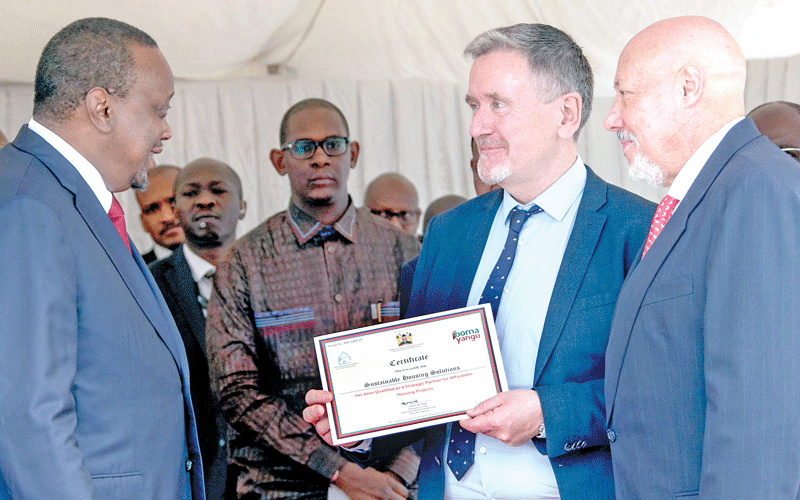
Uhuru said his administration had taken several measures over the last 18 months to overcome systemic challenges that have made housing unavailable and unaffordable.
These include the decision to make national and county government land available for grand housing and infrastructure.
About Sh30 billion has been set aside for infrastructure at the municipal level, of which Sh11 billion has been disbursed.
“We realised that the affordability of homes was affected by high costs of land and horizontal infrastructure, which can add up to 60 per cent to the cost of development,” Uhuru said.
To enhance affordability, the Statehas been working with stakeholders to identify suitable tax incentives that could have a positive impact on the cost of construction.
“Through the Finance Act 2019, we have provided VAT exemption for all inputs in affordable housing development schemes.
We have also continued to provide a 15 per cent corporate tax rate for developers with projects producing at least 100 affordable housing units; which is half the normal corporation tax rate,” Uhuru said.
Uhuru said first-time homeowners were exempted from paying stamp duty under the affordable housing arrangement.
“We have also waived Nema and National Construction Authority (NCA) fees on construction. Counties are also following suit by waiving their county government development fees to further reduce costs,” the President pointed out.
Cooperative society
The UN Under-Secretary-General and Executive Director of Unops, Vitaly Vansheilboim congratulated the Kenyan government for bringing affordable housing to the forefront.
“We will showcase this project across Africa as it demonstrates what a dedicated government can do to the people,” Vansheilboim said.
Earlier, Mahesh SK, Singapura’s chief investments officer was reported saying the three-bedroom units (4,368 apartments) would go for Sh5.8 million each; 2,912 two-bedroomed units (Sh4.8 million) and 972 one-bedrooms (Sh3.5 million). Prices for the 576 studios, whose size will range between 22 to 28 square feet, will be disclosed later.
About 60 units will be set aside for retail outlets in the gated community that will also include football and rugby pitches, jogging tracks and a swimming pool.
Out of the residential units, 1,080 will be set-aside for members of the Habitat Housing Co-operative Society that owns the piece of land.


